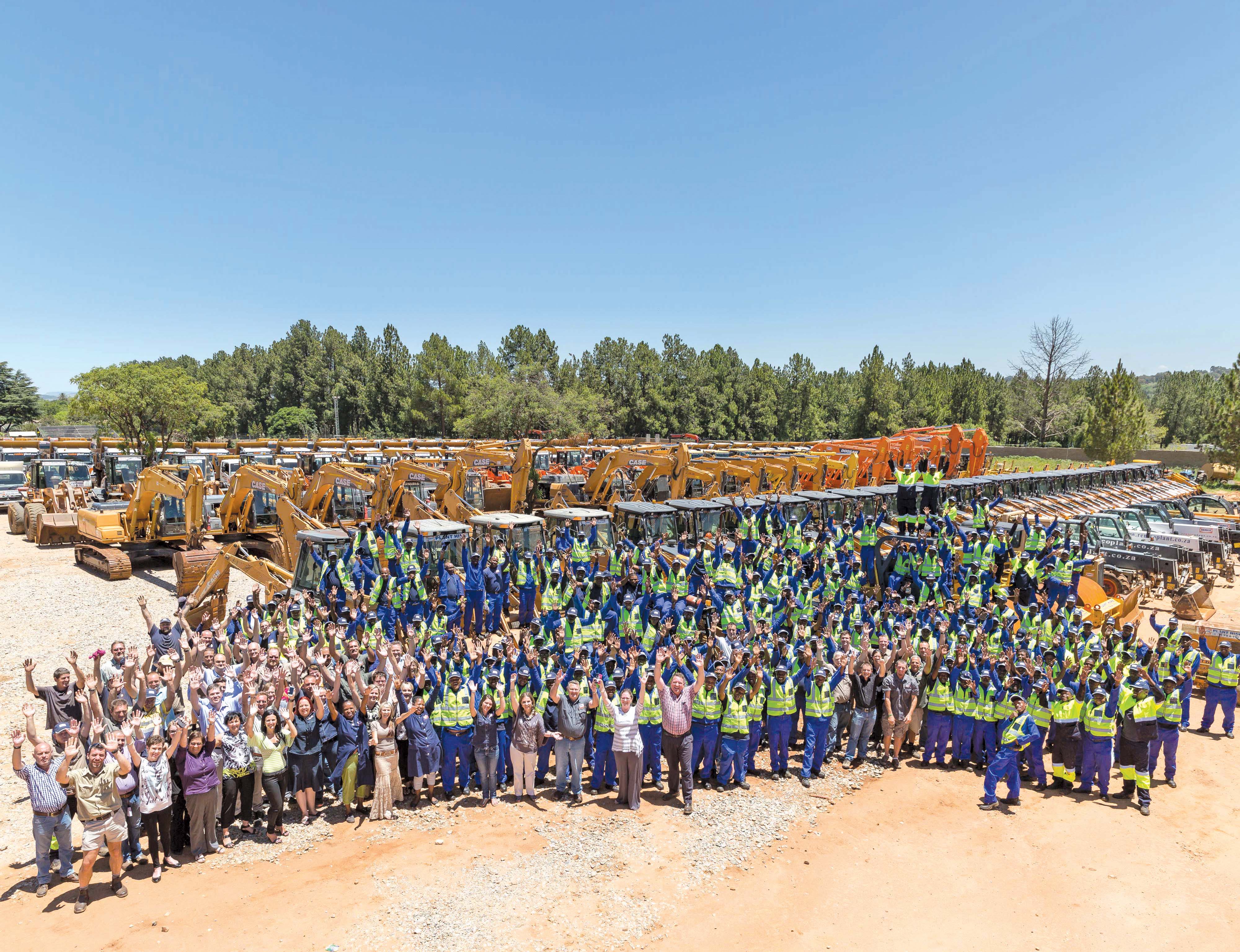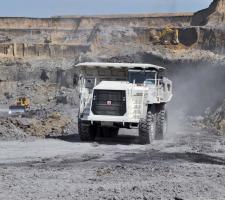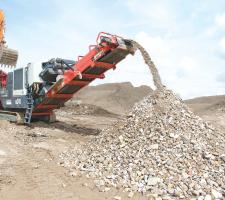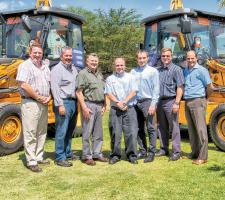
The global rental market for quarrying and construction equipment varies from region to region, and can also depend on the type of machine involved, writes Guy Woodford.
Scott Freeman, CNH Industrial Construction Equipment business director for UK and Eire, said the UK rental market among traditional equipment rental customers was 3-5% up year-on-year in 2015. “We have hire purchase packages of one to five years, and we’ve noticed that it’s now most common for customers to take out three to four-year packages,” he commented.
Freeman said 8-21tonne excavators are the most popular rental models in the UK. Within that, he said there’s growing demand between the 13tonne and 21tonne excavator rental class for short radius models. “I think the demand is regional. If you’re doing motorway work, say, in and around cities, it’s definitely more conscientious to have a short radius model. Most of the eight tonne excavators supplied into the market by all manufacturers are short radius anyway now.”
Freeman added: “The rental market across Europe remains stable. Some of the bigger companies are declaring on their model purchases, which is helpful to all manufacturers, as lead times can be an issue. There are definitely some clients who would have purchased rather than rented a year or two ago.
He continued: “I think UK government policy on new infrastructure and housebuilding has probably increased rental demand. You’ve also got more specialist kit, and when there’s less of it around that increases demand. There’s some good projects, such as the new Aberdeen bypass, in Scotland, which is very much underway, and then there’s the HS2 rail link.
“I think one of the issues in the UK equipment market in 2016 could be the strong [sterling] currency. Used equipment in the UK is probably not flowing as quickly as it did before. If the customer can’t get the right price say, for instance, for their 21tonne excavator, they might keep it.”
Nico Louw, founder and managing director of the South Africa-based Renico Group, started Renico Plant Hire with an old backhoe loader in 1998. Since then, the company has established itself as one of the leading plant hire companies based in north-west Johannesburg and its rental fleet has grown remarkably up to today’s count of over 400 units – 90% of which are Case.
“Plant rental is a competitive thing on its own, so we need to have the best equipment and provide the best service backup,” Louw explained. “Reliability is a key factor in our business. Our results depend on the equipment performance and having minimum downtime is essential.
“There’s no need for many of our customers to buy equipment if they have a short-term job, such as for six months. Some people also like to rent as it’s a below the line, tax deductible cost.”
Part of the Renico Group comprising various companies in the fields of construction, property investment, quarrying and crushing, civil engineering and earthworks in addition to plant hire, Renico Plant Hire’s model portfolio includes 38 Case tractor backhoe loaders, 14 Case excavators from 21-29tonnes, four motor graders and several skid steer loaders and telehandlers. All the models are supplied by Case distributor CSE.
The units are deployed on various job sites throughout South Africa and Namibia and they have played a crucial role in the development of large-scale civil engineering projects, including shopping centres, office developments, casinos, highway upgrades, mining and various other projects.
“For example, there is a 21 tonne Case excavator working on the upgrade of the Northern sewer in Johannesburg while several backhoe loaders are used for upgrading the K90 road at the Waterford Estate. Furthermore, our 29tonne excavators will be soon starting some civil works at Empire on the Hill,” said Louis Nel, responsible for operations, technical & procurement at Renico Plant Hire.
“Ease of use is a very important factor for our customers,” added Nel. “We are committed to provide them with turnkey equipment solutions that perfectly fits their needs and applications.” Technical support and parts availability are also critical. “CSE is always available when we need them and they resolve any issues at speed,” said Louw. “What’s more, when we need to renew or expand our fleet, we get from them excellent advice on the model that will fit best with our needs.”
Comparing model rentals with model purchases, Louw says that with finance agreements widely available for customers buying equipment outright, it can take longer for equipment suppliers to make reasonable returns on purchases, compared to rental agreements, such as in “Month 37” after the completion of a three-year purchase finance deal.
Of the current and future equipment market in South Africa, Louw added: “Equipment purchases are generally down as the world economy is in a bit of a decline, but I think the market is starting to feel more bullish.”
Adrian Wood,
Wood said that as well as Metso’s rental customers seeing the advantages of not having to use capital expenditure and tying up funds with outright equipment unit purchases, there’s another key advantage to renting: “It’s in the speed distributors or manufacturers themselves can react to an order. If you were a contractor who had won a major contract, to go out and purchase equipment, however good the supply chain, it would normally take time to deliver it. With rental equipment, you can get it to the customer quickly, even the same day an order is placed.”
Of the most popular Metso rental units, Wood said easily transportable, small to mid-sized track-mounted crushers and screens are always in big demand. “If you’re renting fixed equipment, there’s huge set-up costs. It’s the same with the larger mobile equipment. You would need to have a big long-term contract if you wanted to rent these units in order to justify the cost.”
Of current strong and potential growth markets for rental equipment, Wood says the UK remains a mature and strong market. Of other markets, he added: “A lot of our distributors in the US do a huge amount of rental business. That’s always been the case, even before the global financial crash of 2008 restricted capital finance. In the US, every single distributor will have a significant rental fleet.
“I think the developing countries and markets, such as the Middle East, China and other parts of Asia, represent the biggest growth prospects on rentals. These markets don’t yet have developed rental options.”
Wood said Metso had changed its rental strategy in recent years, investing more heavily in rental distribution partnerships rather than direct rentals. “Our distribution partners are specialists who have a great knowledge of the rental demand in their market regions. We still do direct sales in certain markets – and both distribution partner and direct sales in others, like the UK. We assess each market and work out whether the customer is best served by a distributor partner or from a direct Metso sale.
“In the future, we’re not going to shift to more and more partner distributors or return to more direct sales. We’re going to focus more on a better quality of service to our customers.”
These contractors (crushing, screening, drilling etc) are specialised firms, many with names renowned for their professionalism, knowledge and experience. Such companies include
The Sandvik Construction spokesperson said the main reasons for the predominance of specialised contractors rather than simple hire is customer demand. “That said, in some markets, such as the US, and some European countries such as Germany, many companies prefer to hire (often before purchase). Many of our dealers and distributors in these markets offer a hire service (as opposed to contracting) and are geared to support such operations with highly focused customer support. The rental market has therefore become a big growth area particularly for distributors of mobile crushing and screening equipment in the US.
What makes the US market different is probably a cultural factor. It is the norm there to hire a car for a set period of time, and after say 3 years, replace it with another hire car. Attempts to provide the same service in Europe have not been highly successful. Hence, with construction equipment we find the same to be true.”
Terex Trucks reports from its various regional operations that almost all its customer requests are focused on longer-term requirements, with the majority still being full purchase of the machine. “That’s as true in EMEA and the Americas as it is in Asia Pacific,” said a company spokesperson. “In order for a customer to recoup costs for shipping and commissioning the unit, the operational time needs to be long enough to allow them to get the right return.
“In the APAC quarrying and aggregates segment, for example, most Terex Trucks’ customers who own mines view purchasing the equipment as the most economical option. The same also applies in cases where the mine owners outsource the blasting, extraction and hauling of the material to a subcontractor. The only exception is sometimes when the subcontractor needs the equipment for a shorter project time. Terex Trucks estimates that equipment rental accounts for less than 20% of the market for quarrying overall.
“It’s the same story in North America, where customers also predominantly buy rather than purchase rigid dump products. Again, it’s a question of what’s economical in terms of operational costs. Most, if not all, quarries and sand and gravel operations, are long-term projects: renting equipment often makes little commercial sense. Operators expect all mobile equipment to have an extended life cycle and rigid dump trucks can remain in use for ten years or so – in some cases, even up to fifteen, if they have been maintained to the highest standard.”
The
Within EMEA, the general picture is also said by Terex Trucks to be very similar. During 2015, the majority of sales in the company’s EMEA region were direct sales, rather than rented, and that shows no sign of changing during 2016.
“For the most part, purchasing is more cost-effective,” explained sales and marketing director for EMEA, Guy Wilson. “The rigid machines are retained for much longer periods of time than most other pieces of construction equipment and are often economically rebuilt to extend their working life and so reduce the average operating costs of the machine. Most projects are medium- to long-term, allowing more certainty about the equipment required, whereas rental tends to be more popular when companies have a short-term need.
“One example of that might be a possible arrangement in Africa where the Terex Truck dealer is ready to rent out rigid machines to one of our key accounts on a longer-term basis. In such situations, the advantage of equipment rental is that it ties up less working capital and offers the customer greater flexibility.”

















